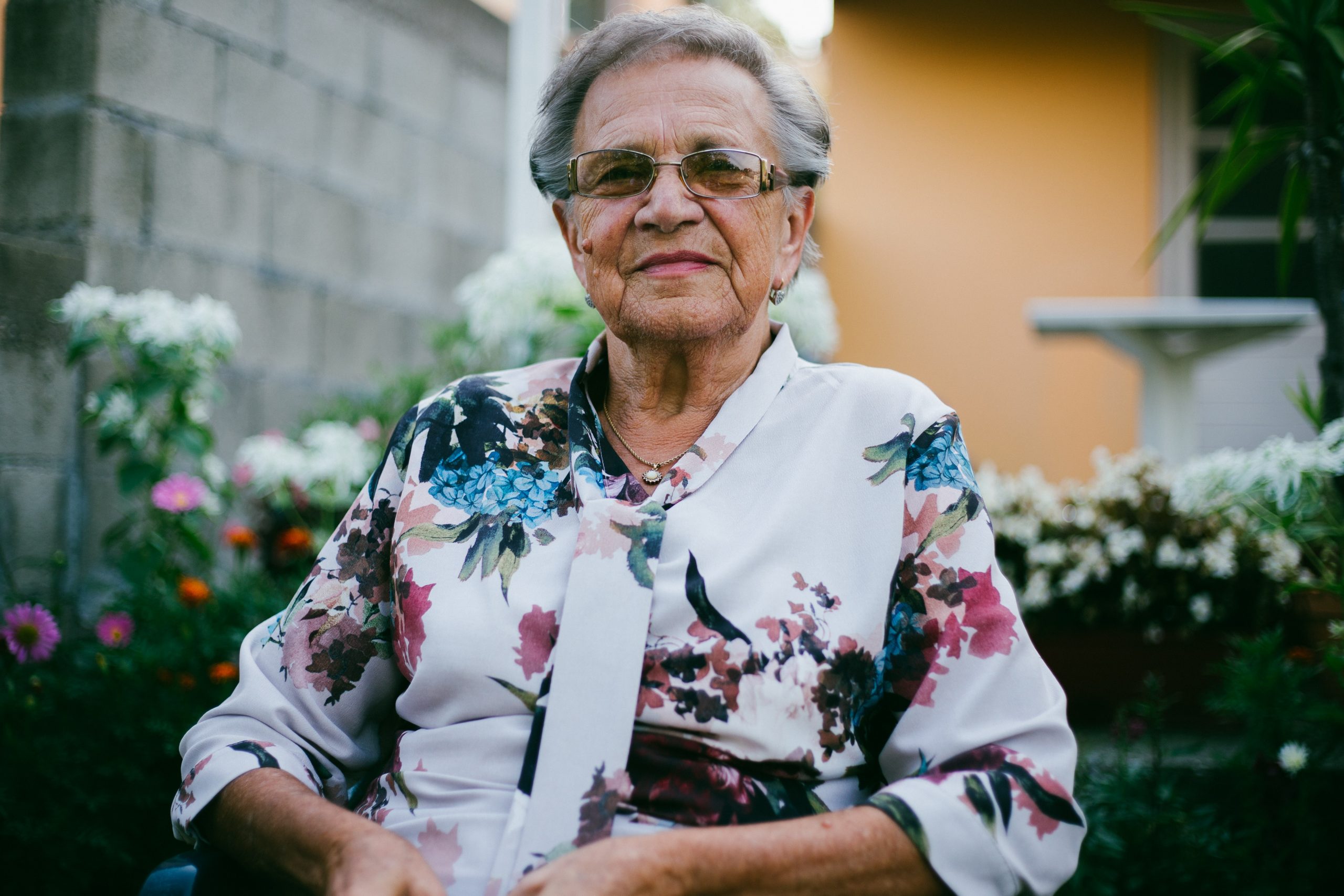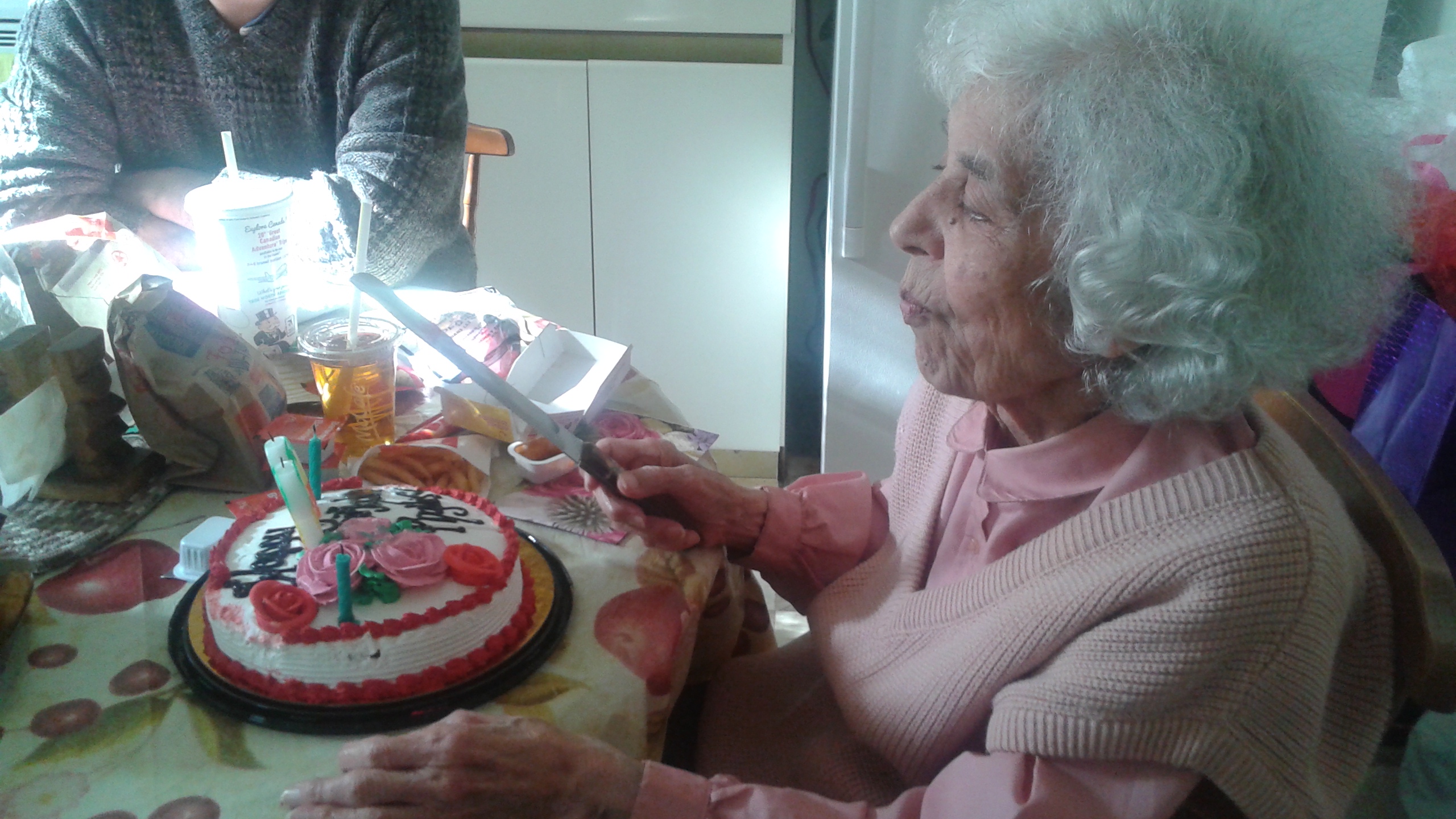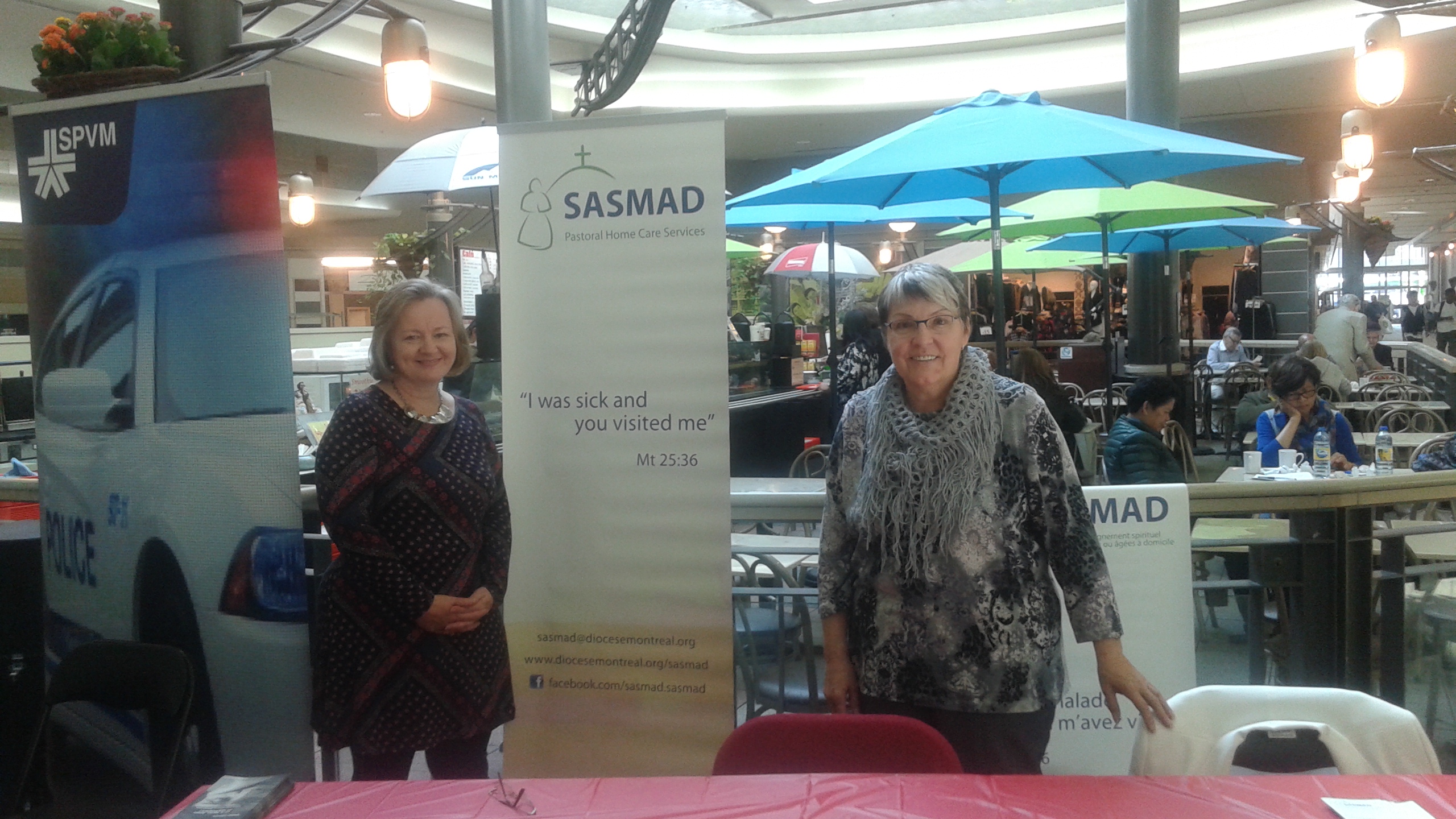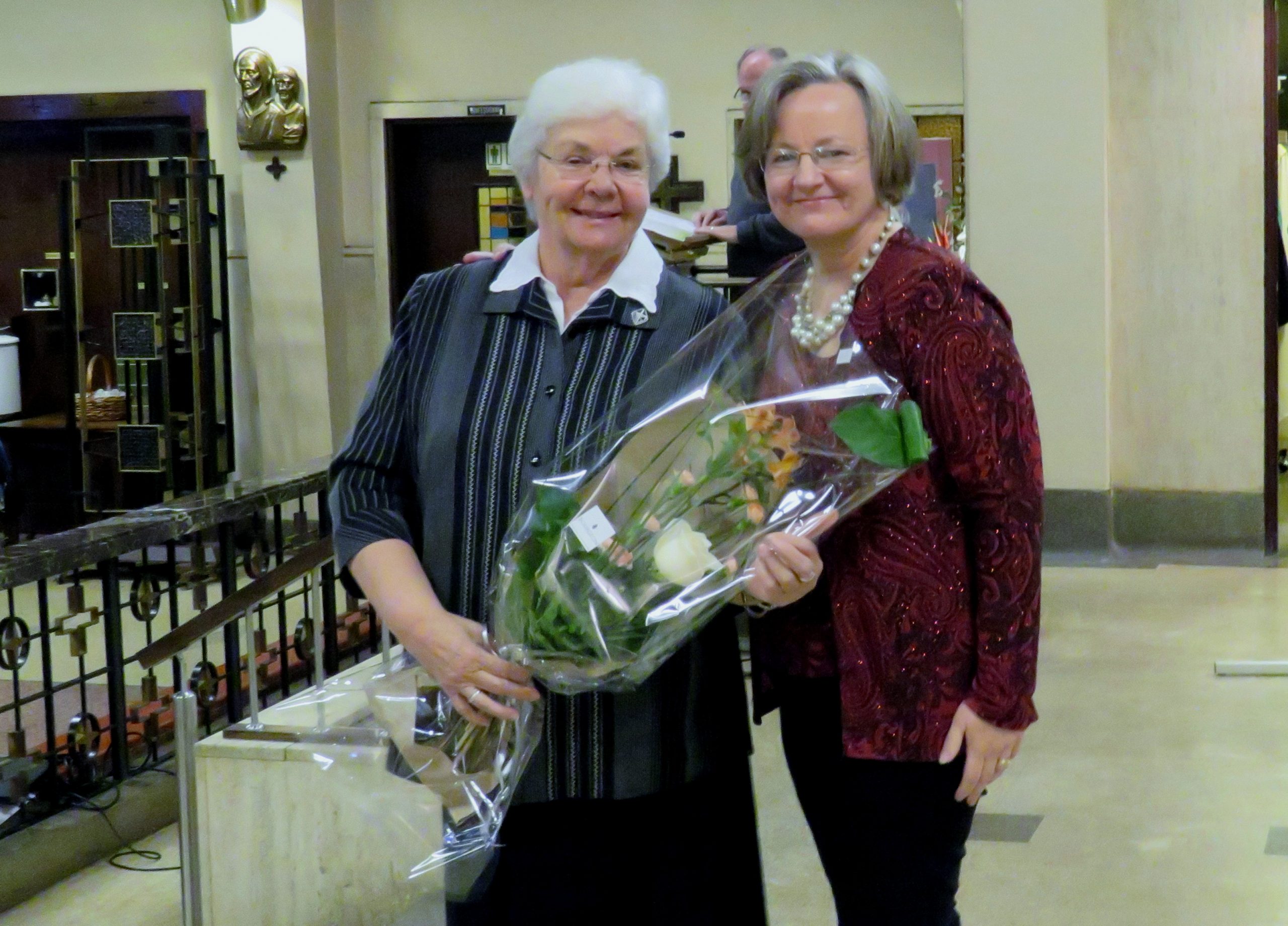SASMAD’s Faith Community
SASMAD is an outreach ministry of the Roman Catholic Archdiocese of Montreal. The Roman Catholic Church is the largest church within the Catholic communion, which has a global number of adherents estimated at 1.3 billion. 1 1 The Holy See, “Statistics of the Catholic Church 2019,” October 19, 2019, https://press.vatican.va/content/salastampa/en/bollettino/pubblico/2019/10/19/191019b.html It is also the largest and one of the most ancient Christian communities globally. Twenty-nine percent of people in Canada identify as Catholic. 2 2 Michael Lipka, “5 Facts about Religion in Canada,” Pew Research Center, July 1, 2019, https://www.pewresearch.org/fact-tank/2019/07/01/5-facts-about-religion-in-canada/.
The Roman Catholic Church has had a presence in what is now Montreal since its founding in May 1642 as Ville-Marie, a French settlement and mission to First Nations peoples, by Paul Chomedey de Maisonneuve and Jeanne Mance. Most of Montreal’s institutions from its seventeenth-century founding until the mid-twentieth century were under the auspices of the Roman Catholic Church. This includes its first and oldest hospital, the Hôtel-Dieu de Montréal, also founded in 1645 by Jeanne Mance and the Religious Hospitallers of St. Joseph, an order of religious sisters.
With numerous educational, cultural, and charitable institutions well-established by the mid-nineteenth century, the Roman Catholic Church in Montreal was organized in 1836 into a diocese independent of the metropolitan see of Quebec.
The first bishop was Bishop Jean-Jacques Lartigue. The present archbishop is Archbishop Christian Lépine. Montreal became an archdiocese in 1886. The Archdiocese of Montreal has a metropolitan territory of 947 square kilometers and a nominal Catholic population of 1,282,799 persons. It comprises 189 parishes that administer over 214 churches. 3 3 Archdiocese of Montreal, “The Catholic Archdiocese of Montreal: Some Stats,” https://diocesemontreal.org/en/archdiocese/stats. There are 740 priests, 82 deacons, and 2,124 men and women in religious orders who serve the faithful of the archdiocese. 4 4 \Archdiocese of Montreal, “The Catholic Archdiocese of Montreal: Some Stats,” https://diocesemontreal.org/en/archdiocese/stats. The Archdiocese of Montreal is the second largest in Canada after the Roman Catholic Archdiocese of Toronto.
Theological Motivation
The activities of SASMAD and its volunteers are guided by their Catholic faith and the call of Jesus Christ in the Gospels to visit the sick and comfort the suffering. While acting out of fidelity to their Catholic faith, the volunteers of SASMAD provide accompaniment to anyone who is sick and in need, no matter what their faith tradition: “Faithful to God who has called us, in the Church, to care for the sick at home, we make a commitment to respond to the spiritual needs of people who are suffering, within the context of the reforms in the healthcare system, whatever their beliefs.” 5 5 Archdiocese of Montreal, “SASMAD–Pas- toral Home Care,” https://www.diocesemontreal.org/en/archdiocese/offices-and-services/sasmad-accompaniment-service While being faithful to the gospel, SASMAD’s activities are not explicitly evangelistic. Depending on the individual person’s needs, SASMAD volunteers are trained to provide spiritual accompaniment that is not specifically Catholic but is what they describe as listening at the level of meaning. This contrasts with religious accompaniment, which offers specific religious support to Catholics that can include reading Scripture with them, listening to hymns, prayer, and distribution of the Holy Eucharist.
History and Goals
The mission of SASMAD is founded on the verses from the Gospel of St. Matthew (25:31–40) that speak about the Christian duty to those in need: the sick, the naked, and the imprisoned. This Gospel pericope references Christ the King who at the moment of judgment tells the righteous ones,
Come, O blessed of my Father, inherit the kingdom prepared for you from the foundation of the world, for I was hungry and you gave me food, I was thirsty and you gave me drink, I was a stranger and you welcomed me, I was naked and you clothed me, I was sick and you visited me, I was in prison and you came to me. . . .Truly, I say to you, as you did it to one of the least of these my brethren, you did it to me.
The specific call of Jesus Christ to visit the sick inspired Sister Madeleine St-Michel, a religious sister of the Religious Hospitallers of St. Joseph, to launch in 1992 a ministry within the Archdiocese of Montreal that would provide spiritual accompaniment to the sick and the aged in their homes. 7 7 Interview with Cathie Macaulay, October 8, 2020. Sr. St-Michel had a background in providing support to those in palliative care and realized the great need there was to acknowledge and attend to the spiritual dimension of care. 8 8 Archdiocèse de Montréal, “Notre Histoire,” https://microsites.diocesemontreal.org/micro-sites/sasmad/notre-histoire/ This came at a time of shifting approaches to health care in Quebec, with shorter hospital stays and a greater reliance on ambulatory care that led to a greater need for home care and assistance. Sr. St-Michel recognized that with this shift there was a loss in a sense of accompaniment during the pivotal moments of people’s lives, when they are dealing with a major illness or have just had major surgery. At those times, various existential questions arise.
With a shift of post-operative care to the home, many people lost the immediate connection to a priest, chaplain, or somebody who could support them in those moments. Sr. St-Michel wanted to fill that need by having volunteers who would visit people in their own home. 9 9 Interview with Cathie Macaulay, October 8, 2020.
In 2004, Sr. St-Michel brought on an English-speaking deacon to expand SASMAD into the English-speaking parts of the archdiocese. SASMAD is now administered by a director who oversees the work of six coordinators: five coordinators cover the different geographic regions of the archdiocese, while one covers the archdiocese in its entirety for the Anglophone community. They are supported by an administrative assistant. 10 10 Email correspondence with Cathie Macaulay, September 10 and 11, 2020.
The goals of SASMAD are summed up in the principles of its mission statement:
- To participate in the mission of the Church as witnesses of the Resurrected Christ by becoming a significant presence, in a spirit of respect and dignity, in the lives of the sick or elderly;
- In faithfulness to Jesus Christ who calls and sends us forth to be a presence to sick or elderly person in their own homes;
- As the Church, we commit to responding to the spiritual needs of those suffering, no matter what their beliefs may be;
- By our accompaniment, we can assist them in finding meaning in their lives and discover through their hardships a renewed sense of hope and freedom;
- In the spirit of the Gospel, we will develop an attitude of unconditional welcome, listening, empathy, acceptance, gentleness, and compassion; and,
- We reaffirm and proclaim the values of respect for life and dignity of the person, values which motivate and support our commitment. 11 11 SASMAD “Mission Statement,” provided via email on September 10, 2020.
Activity and Impact
The core activity of SASMAD is home visits for spiritual or religious accompaniment. These are undertaken “according to the expressed needs of the person being visited.” 12 12 Archdiocese of Montreal, “SASMAD–Pastoral Home Care,” https://diocesemontreal.org/en/archdiocese/offices-and-services/sasmad-accompaniment-service. The act of accompaniment is guided by certain core principles:
- A respectful and comforting presence.
- Attentive listening.
- Focus on what is most essential, with respect for the dignity of the person being visited and their habits and customs.
- A privileged time to listen to the person’s personal story.
- An opportunity to answer the need for reconciliation with themselves, with others and with God. 13 13 Archdiocese of Montreal, “SASMAD–Pastoral Home Care,” https://diocesemontreal.org/en/archdiocese/offices-and-services/sasmad-accompaniment-service.
Spiritual or religious accompaniment is offered to the sick, the elderly, community organizations, family and caregivers, workers from the health and social services networks, and anyone who is aware of a need for spiritual accompaniment. 14 14 Archdiocese of Montreal, “SASMAD–Pastoral Home Care,” https://diocesemontreal.org/en/archdiocese/offices-and-services/sasmad-accompaniment-service.
At the time of its founding in 1992 by Sr. St-Michel, SASMAD had one volunteer: Mme Thérèse St-Onge. 15 15 Archdiocèse de Montréal, “Notre histoire: Soins spirituels une vision nouvelle,” https://microsites.diocesemontreal.org/microsites/sasmad/wp-content/uploads/sites/27/2020/11/notre-histoire-pionniers-page-blanche.pdf. In 2020, SASMAD is supported by the activities of 450 volunteers, the vast majority of whom are Catholics, including approximately 40 who are members of the archdiocesan clergy or religious congregations. 16 16 Email correspondence with Cathie Macaulay, September 10 and 11, 2020. These volunteers serve roughly 1,700 beneficiaries, many of whom are Catholic, with many others who are the faithful of other Christian denominations, members of other faiths, or people of no religious faith. 17 17 Email correspondence with Cathie Macaulay, September 10 and 11, 2020. Home visits are undertaken in French, English, or another language as required by the homebound person. SASMAD currently offers support in twenty languages in total. 18 18 Email correspondence with Cathie Macaulay, September 10 and 11, 2020. SASMAD provides a basic twenty-hour program of formation for its volunteers that gives them the necessary resources for effective spiritual and religious accompaniment. 19 19 Email correspondence with Cathie Macaulay, September 10 and 11, 2020. All volunteers ascribe to the organization’s mission statement and code of ethics. SASMAD receives approximately three hundred requests per year for accompaniment from the island of Montreal, Laval, and Repentigny. Roughly 70 percent of these requests come from health-care workers, including social workers. Roughly half of these requests are for religious accompaniment for Catholics and other Christians, and the remainder are from those who seek accompaniment without a specifically sacramental component. SASMAD is very clear that their ministry is not an explicitly evangelical venture, in that it does not seek to convert non-Christians to the Christian faith. The volunteers reveal their Christian faith through their care, devotion, and giving of their time to those who are homebound.
In addition to the in-home visits and accompaniment that lies at the core of SASMAD’s work, the organization engages in a number of annual events that enhance its ministry. Every year SASMAD hosts a diocese-wide celebration of the World Day of the Sick on the closest Saturday to February 11, which is the Catholic feast of Our Lady of Lourdes. Catholics believe that Lourdes, located in the French Pyrenees, is the site of a series of apparitions of the Blessed Virgin Mary to the young Bernadette Soubirous in the first half of 1858. From that time, it has been a place of physical and spiritual healing for thousands. The World Day of the Sick was instituted in May 1992 by Pope St. John Paul II as an occasion for prayer, sharing, and offering of one’s suffering.
SASMAD has also introduced an initiative called The Friends of Mercy (Les Amis de Miséricorde) which is a prayer ministry connected to the organization’s mission. Members of the group commit to praying for the volunteers, beneficiaries, staff, and the mission of SASMAD, as well as for any prayer intentions that the organization receives from the broader community. The Friends of Mercy include many devoutly Catholic beneficiaries and retired volunteers who are no longer able to visit homes but who desire to play a role in the SASMAD community.
The 2020 COVID-19 pandemic has proved to be a significant challenge for SASMAD, as they seek to abide by public health regulations that restrict their ability to visit people in their homes. This however has not compromised SASMAD’s ministry. Like many faith-based initiatives, SASMAD has adapted to the situation of the pandemic by offering new, virtual ways of engaging its beneficiaries. SASMAD has developed its online and social-media presence and has transitioned to providing increased telephone support to those that it ministers to. SASMAD is able to connect its beneficiaries with the community resources they need, to support them during the pandemic. They have also established a Spiritual Support Line that operates seven days per week, answering people’s spiritual questions and offering support to those who are experiencing increased isolation during the pandemic and simply need someone to talk to.
This is an example of a very simple way in which faith-based initiatives can address social isolation by offering very basic human interaction: a listening ear, reassurance, and the spiritual support that comes with prayer.
Support and Budget
SASMAD’s annual budget is approximately $450,000. 21 21 Email correspondence with Cathie Macaulay, September 10 and 11, 2020. This supports all of SASMAD’s programming, the majority of which is supporting their volunteers’ outreach to beneficiaries, and also paying the salaries of eight staff members. The source of funding is the Archdiocese of Montreal, which is a registered charity. Over half of the annual budget that the archdiocese provides to SASMAD is supported by the Fondation Les Amis de Jeanne Mance, a charitable foundation established to support SASMAD’s work. In 2019, the foundation had revenue of $225,147. In the same year it provided $235,000 (85 percent of expenses) as a grant to the Archdiocese of Montreal. 22 22 Canada Revenue Agency, “2019-06-30 Charitable return of la Fondation Les Amis de Jeanne Mance,” https://apps.cra-arc.gc.ca/ebci/hacc/srch/pub/dsplyRprtngPrd?q.srchNm=les+amis+de+jeanne+mance&q.stts=0007&selectedCharityBn=890614910R-R0001&dsrdPg=1. In 2019, the Archdiocese of Montreal spent $6,051,480 (53.97 percent of its annual revenue) on charitable programs. In terms of its revenue, the archdiocese receives no government funding. 23 23 Canada Revenue Agency, “2019-06-30 Charitable return of the Corporation Archie- piscopale Catholique Romaine de Montréal,” https://apps.cra-arc.gc.ca/ebci/hacc/srch/pub/dsplyRprtngPrd?q.srchNm=montreal+e-piscopal&q.stts=0007&selectedCharityB-n=118876390RR0001&dsrdPg=1.
Conclusion
At the inauguration of the first World Day of the Sick, Pope St. John Paul II declared,
The hopes which are so alive today for a humanization of medicine and health care require a more decisive response. To make health care more humane and adequate it is, however, essential to draw on a transcendent vision of man which stresses the value and sacredness of life in the sick person as the image and child of God. Illness and pain affect every human being: love for the suffering is the sign and measure of the degree of civilization and progress of a people 24 24 John Paul II, “Message of the Holy Father Pope John Paul II for the First Annual World Day of the Sick,” the Vatican, October 21, 1992, http://www.vatican.va/content/john-paul-ii/en/messages/sick/documents/hf_jp-ii_mes_21101992_world-day-of-the-sick-1993.html.
SASMAD is a visible manifestation of such a decisive response to make health care more humane and so recognize the transcendent vision of humanity. Motivated by their Catholic faith, the volunteers and leaders of SASMAD attend to those who are so often neglected and isolated: the sick and the elderly. In the spiritual and religious accompaniment they offer and in the companionship this manifests, they reveal the human dignity of the person to the broader community.




